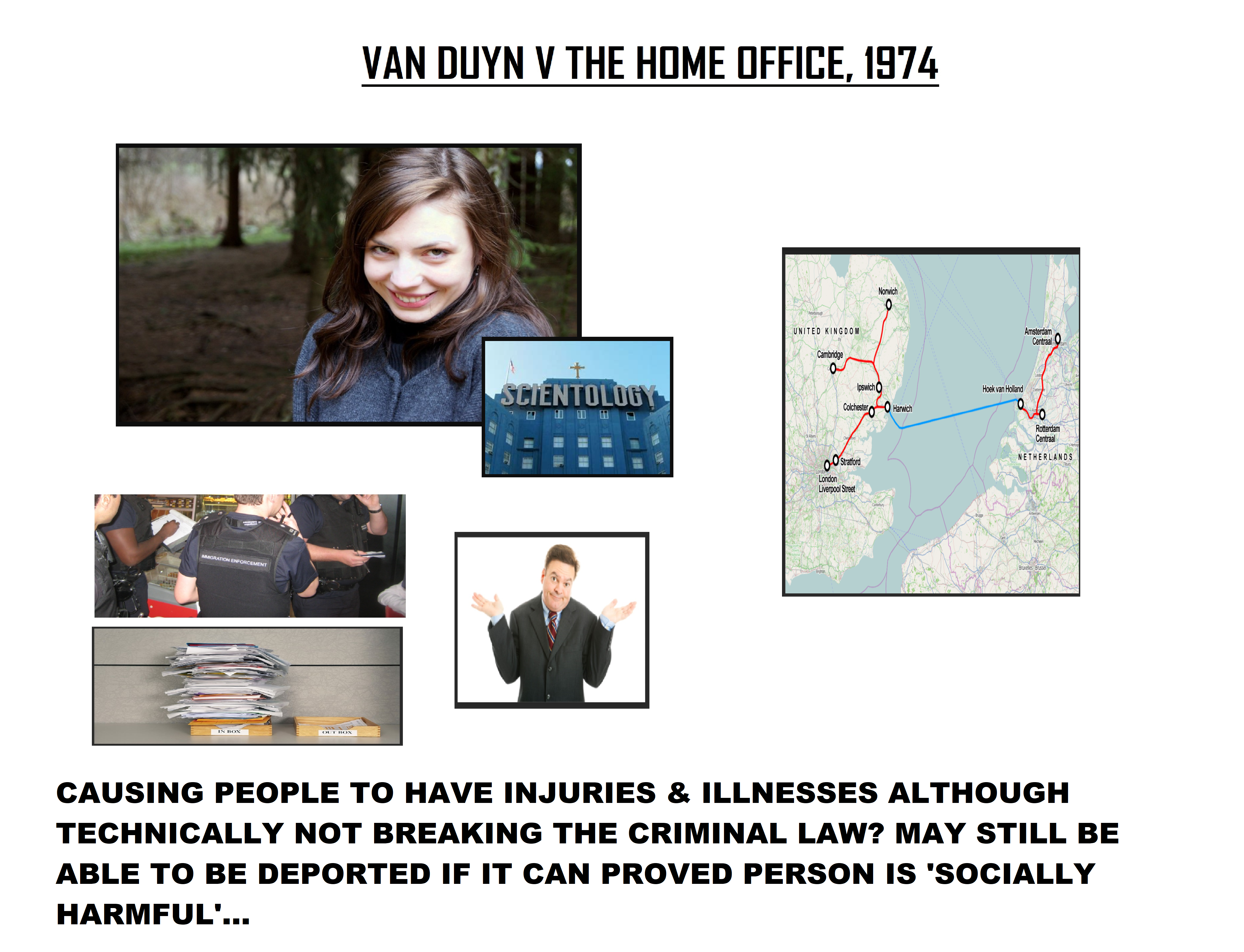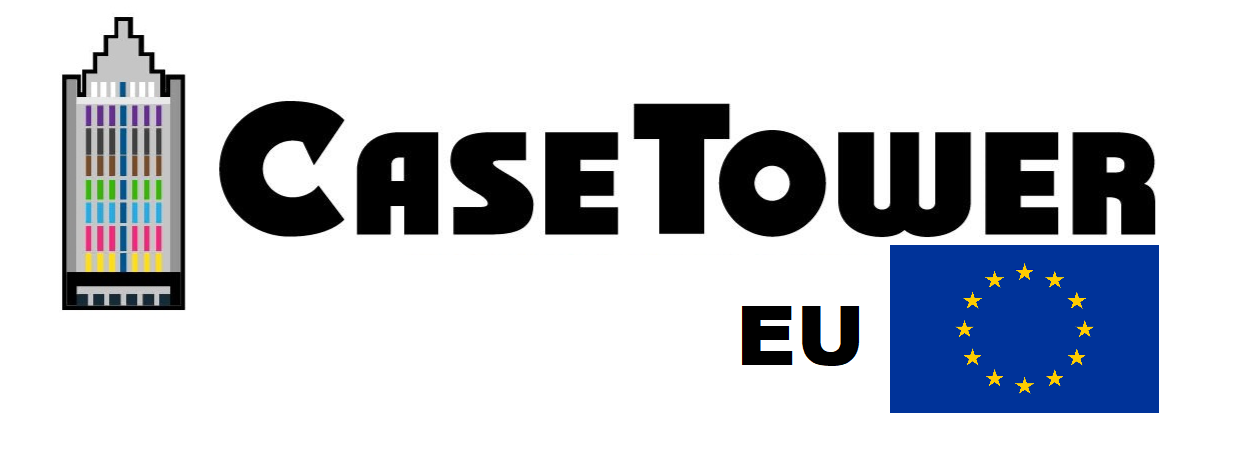Van Duyn v Home Office, Case 41/74, ECJ
Citation: Van Duyn v Home Office, Case 41/74, ECJ
Rule of thumb: Can you be kicked out of an EU state by immigration authorities if you are suspected of committing crimes but never prosecuted for this? Potentially yes. The Court in this case affirmed the important immigration law principle of the exclusion of a 'socially harmful' foreign EU national exclusion. People from any state in the EU are as a general rule allowed to work in any EU country they want without a visa, but, if the EU country can argue that they reasonable suspect their conduct is 'socially harmful', even though not yet proved to be illegal/criminal, then they can use this exception to stop the EU national entering the country. This is an exception to the principle of free movement of workers across the EU.
Facts & arguments
The facts of this case were that Mrs Van Duyn was a Dutch national. She got a job to work for the Church of Scientology in the UK. The UK immigration office refused her permission to enter the EU. The UK argued that the Chruch of Scientology was 'socially harmful' and that they were not prepared to let Van Duyn into the UK to act in a socially harmful way to the UK. Van Duyn took the opportunity to fully appeal this refusal. Van Duyn argued that she was legitimately being paid by the Church of Scientology, which was a non-criminal and tax paying organisation who provided legitimate psychological therapy services in the UK and indeed had a good and noble purpose. She argued that under EU law she had freedom of movement of workers which was being infringed by the UK immigration officials in the Home Office. The UK argued in response that Van Duyn was planning to enter the UK with the intent to carry out socially harmful behaviour as part of the Church of Scientology. At this time there was a lot of suspicion in the UK regarding the business methods of the Church of Scientology - they were suspicious that these business methods may be illegal. There were many arguments about how people had lost a lot of money to the Church of Scientology, and deeply regretted becoming involved with them, and people in the UK were really not sure about the legalities of their work, albeit no legal cases had successfully been brought against them at that point. The UK argued that whilst these investigations and suspicions were ongoing against the Church of Scientology, more people should not be allowed to enter the UK to work for them.
Judgment:
The EU Court upheld the arguments of the UK in this matter. They held that the free movement of workers ie EU workers not needing a VISA to work in another EU country, is not an absolute right, but a qualified one which can be infringed if there is a suspicion that they are going to be 'socially harmful'. They held that where an individual has an intent to go into another EU country in a 'socially harmful' way then in exceptional circumstances they can still be refused entry into the country. They held that these circumstances involving Van Duyn and the Church of Scientology were one of these exceptional 'socially harmful' situations. The UK won this case and Van Duyn lost - she was refused entry into the UK. (There has been commentary from academics on this case. Nowadays, the Church of Scientology is not viewed as being 'socially harmful' or suspicious, albeit it still does have many critics and sceptics of it today, and those arguments would not stand up in Court today, albeit the underlying arguments of being under suspicion of socially harmful activity might).
Ratio Decidendi Judgement quote: 'a member state ... is entitled to take into account as a matter of personal conduct of the individual concerned, the fact that the individual is associated with some body or organisation which the member state considers socially harmful if not illegal in their state'.

Warning: This is not professional legal advice. This is not professional legal education advice. Please obtain professional guidance before embarking on any legal course of action. This is just an interpretation of a Judgment by persons of legal insight & varying levels of legal specialism, experience & expertise. Please read the Judgment yourself and form your own interpretation of it with professional assistance.

